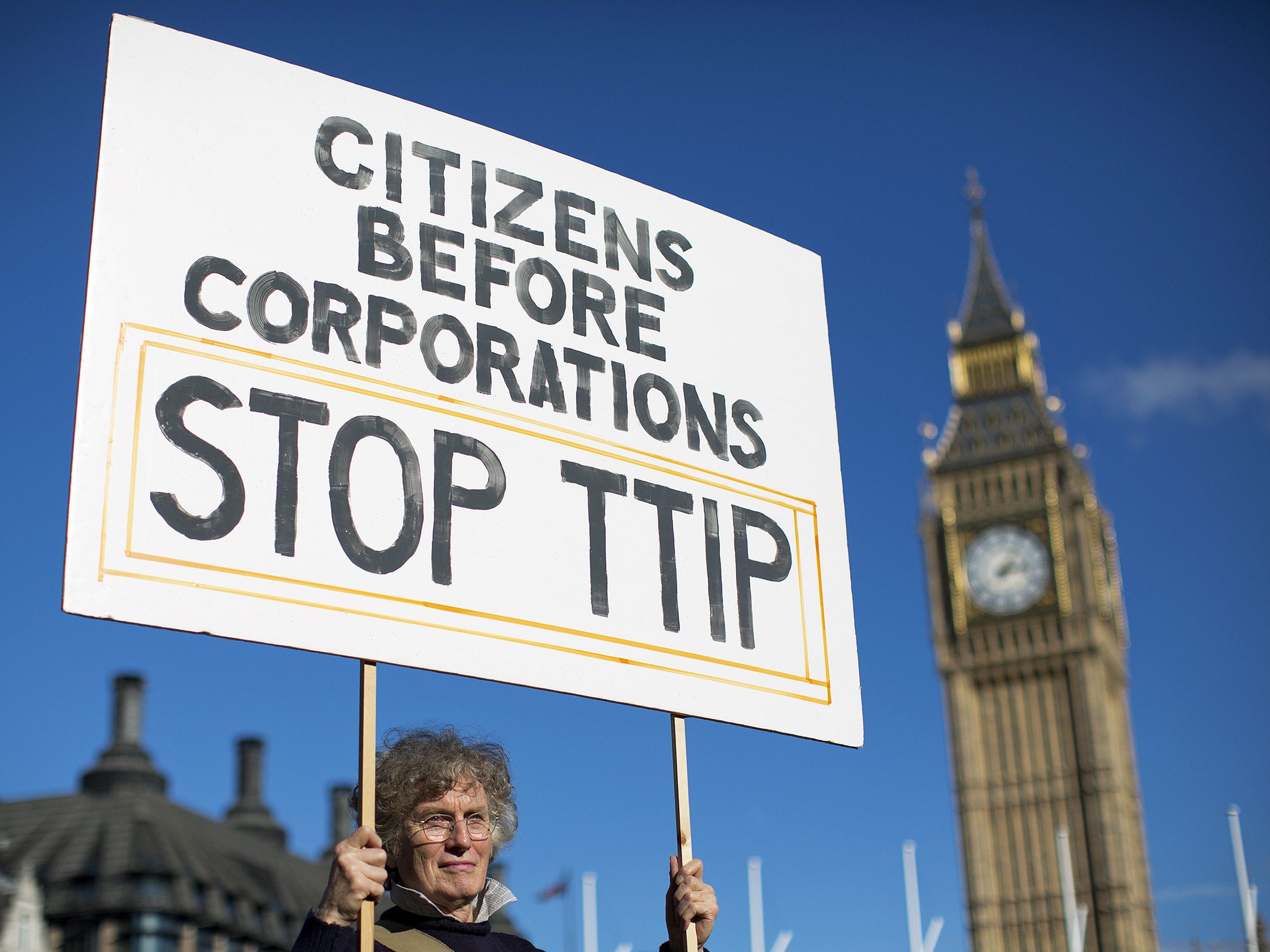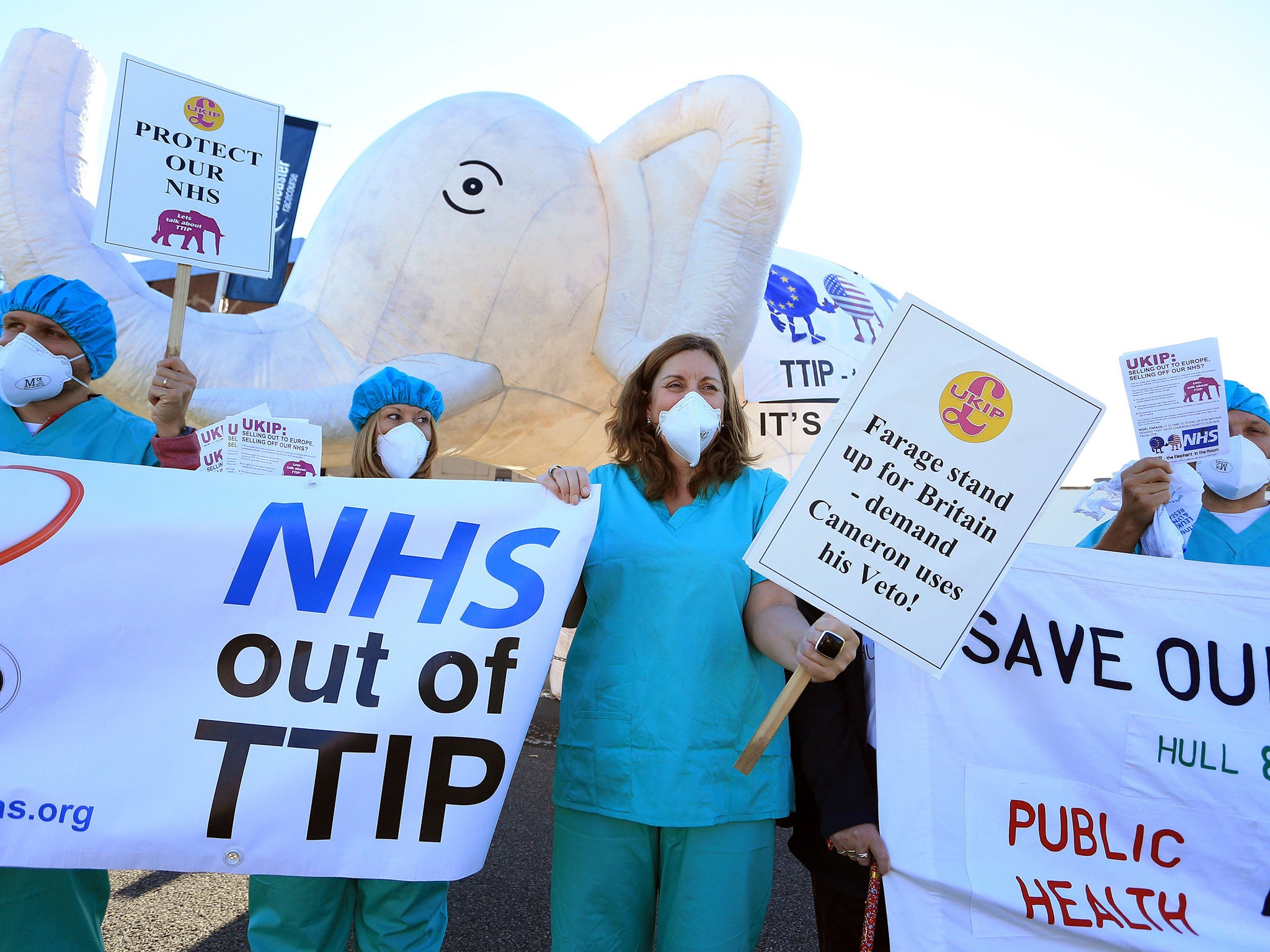The battle against TTIP is a battle for British democracy, and we must not stop fighting it
Imagine a future where corporations can sue governments if public policies damage their profits — if TTIP passes, you won't have to

The European Commission (EC) finally released the results of its public consultation on the Transatlantic Trade and Investment Partnership (TTIP) today.
It was supposed to be released last year, but now the reason for the delay has become clear, as they're pretty embarrassing. From a record 150,000 responses, over 97 per cent opposed the deal, with the largest opposition (34 per cent coming from the UK).
It's not surprising, as the deal could lead to private corporations holding an unprecedented level of power over our own democratically elected governments.
However, has the EC listened to the people? Of course it hasn't. Instead it's committed itself to further negotiations, and will hold a number of further consultation meetings before deciding how to move forwards.
If the deal ever comes into place, then the impact on our democracy will be devastating. This is mostly down to the Investor-State Dispute Settlement (ISDS) provisions within TTIP. These are behind-closed-door arbitration tribunals made up of corporate lawyers with a vested interest in big business, and are already used in many other trade agreements around the world.
Despite some reports claiming that the ISDS provisions have now been taken off the negotiating table, they have only been suspended, which is likely to be a temporary measure.
Their suspension needs to be permanent. ISDS provisions allow private companies to sue national governments over losses of profit, due to changes in that country’s legislation — even where public health is concerned. For example, the tobacco giant Philip Morris is currently suing the Australian government over its plans to introduce plain cigarette packaging, due to the effect this will have on its business.
To add insult to injury, it is tax payers who usually get stung for the cost of ISDS provisions. Even if the sovereign state wins the case or it is discontinued, the country involved may still have to pay part of the legal costs, which reportedly average $8m.
The anti-democratic nature of the ISDS provisions is neatly summed up by one case in Romania. The government was ordered to pay €250bn to a private company for loss of profits caused by changing legislation in order to gain accession to the EU.
The EU itself tried to intervene in the case, but was overruled by an ISDS tribunal. This now gives us the laughable situation where the EU is seeking a trade deal with the US that includes tribunals which, in the past, have trampled all over its very own sovereignty. Has the EU no dignity, as well as no ears?

Probably not. It has already ignored a citizens’ initiative petition of over one million signatures against TTIP, and it will no doubt do the same with the results of this public consultation, using endless further consultations to eat up time while the storm blows over.
Now however, the attention switches to the UK, where a House of Commons debate on TTIP will take place on Thursday. Then we shall see if Cameron and his government will also continue to bury their heads in the sand over opposition to this deeply unpopular and undemocratic trade deal.
I have a funny feeling they will. Despite the UK public being the most vocal in opposition to ISDS provisions, David Cameron's government is one of 14 that is still pushing for their inclusion in TTIP.
Although is this really surprising? It's become clear in the last five years that when it comes to a choice between business and public opinion, this government always seems to choose business. Really, it's our response which should be surprising them. Above all others, this is the one time when we can't let them get their way.
Join our commenting forum
Join thought-provoking conversations, follow other Independent readers and see their replies
Comments
Bookmark popover
Removed from bookmarks